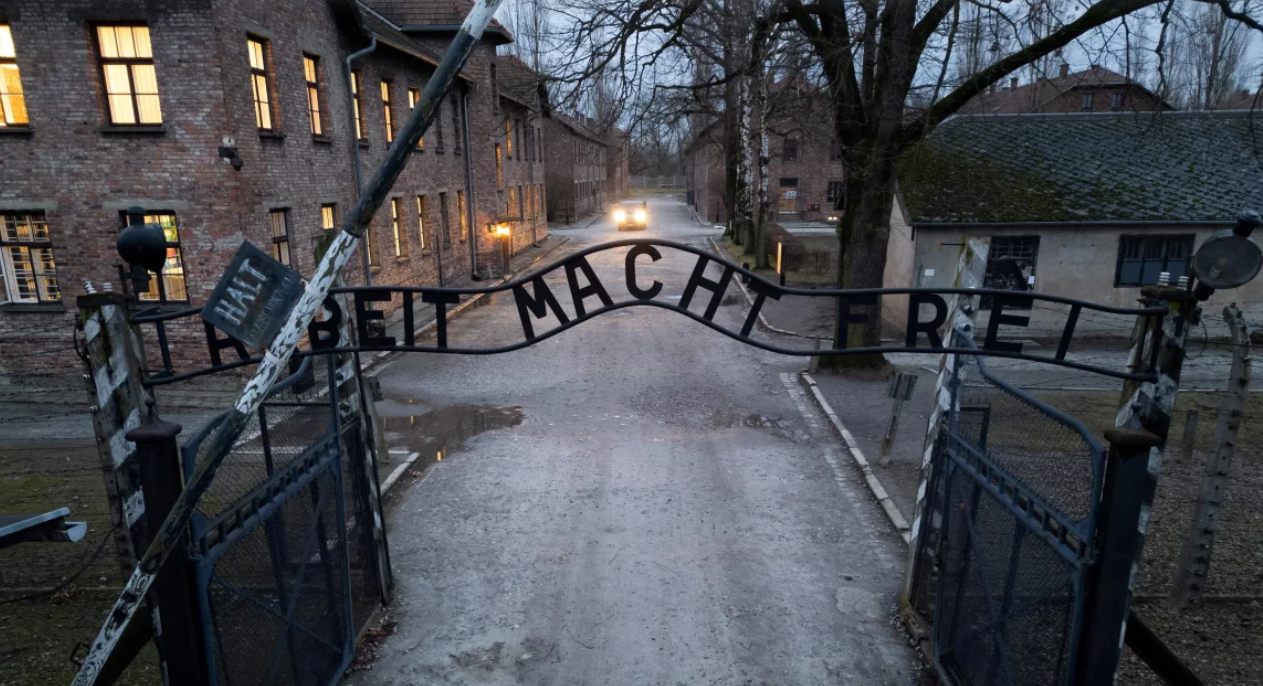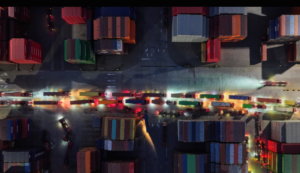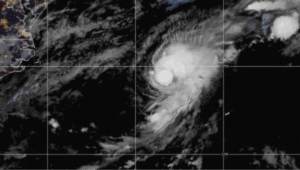Holocaust survivor Jona Laks, now 94, shared her thoughts about returning to the Auschwitz-Birkenau concentration camp, where she spent over a year as a child. Reflecting on the painful experience, she explained, “It doesn’t do any good for your heart, for your mind, for anything.” However, she emphasized the importance of such visits, stating, “But it’s necessary. It’s necessary for the world to know.”
This year marks the 80th anniversary of the liberation of Auschwitz, and Holocaust Memorial Day, which serves as a reminder of the atrocities committed at the camp. Laks was only about 12 years old when she was imprisoned at Auschwitz, along with her twin sister, Miriam. They were subjected to the cruel medical experiments of Nazi physician Josef Mengele. Laks was initially chosen to be executed in the gas chambers, but her older sister intervened, insisting that the twins not be separated, ultimately saving her life.
Reflecting on the unimaginable suffering she endured, Laks expressed how difficult it is for others to truly understand the horrors of those times. “As time passes, things are being forgotten,” she said, lamenting that fewer people from her generation remain to share their experiences. “The world hasn’t learned its lessons from what happened, from what was done.”
Between 1940 and 1945, the Auschwitz camp was the site of approximately 1.1 million deaths, with the majority of victims being Jewish. However, other groups targeted by the Nazi regime, including Poles, Roma, and Soviet prisoners of war, were also murdered there.
Michael Bornstein, who survived for seven months at Auschwitz as a child, spoke about the emotional difficulty of returning to the camp. He acknowledged that “nothing will be easy about returning” to the site where he endured unimaginable horrors.
World leaders, including Britain’s King Charles, German Chancellor Olaf Scholz, and French President Emmanuel Macron, have gathered in Poland to commemorate the liberation of Auschwitz. However, none of the leaders will speak at the event. The focus will instead be on the voices of survivors, allowing them to share their experiences.
All remaining survivors of Auschwitz have been invited to the commemoration, with the option to bring a support person. The Auschwitz Memorial and Museum acknowledged the physical and emotional toll attending the event can take on the survivors, stating, “We are fully aware of how physically demanding and emotionally taxing attending the commemoration event at the site of the former camp can be for them.”
As part of the 80th-anniversary observances, a freight train car will be displayed in front of the camp’s main gate. This train car is dedicated to the memory of approximately 420,000 Hungarian Jews who were deported to Auschwitz during the Holocaust.
The United Nations designated January 27 as International Holocaust Memorial Day in 2005, a day observed annually to mark the liberation of Auschwitz in 1945 and to remember the six million Jews who perished under the Nazis.
This year, the event provides a moment for global reflection and shared commemoration, particularly amid rising antisemitism in Europe. The increase in antisemitic incidents has been linked to the ongoing conflict in the Middle East, specifically the war in Gaza launched by Israel in response to terror attacks by the Palestinian militant group Hamas on October 7, 2023.
Since that time, reports show a surge in antisemitic events across Europe, with some Jewish organizations noting an increase of more than 400%. According to a survey from the European Union Agency for Fundamental Rights (FRA), 76% of Jewish respondents said they hide their identity at least occasionally, and 34% avoid Jewish events or sites because they feel unsafe.
FRA Director Sirpa Rautio commented, saying that Europe is currently experiencing a wave of antisemitism, which severely impacts the ability of Jewish people to live in safety and dignity.
At the same time, the Middle East conflict has also sparked a rise in Islamophobic incidents in Europe, including arson, verbal abuse, and attacks on mosques.













